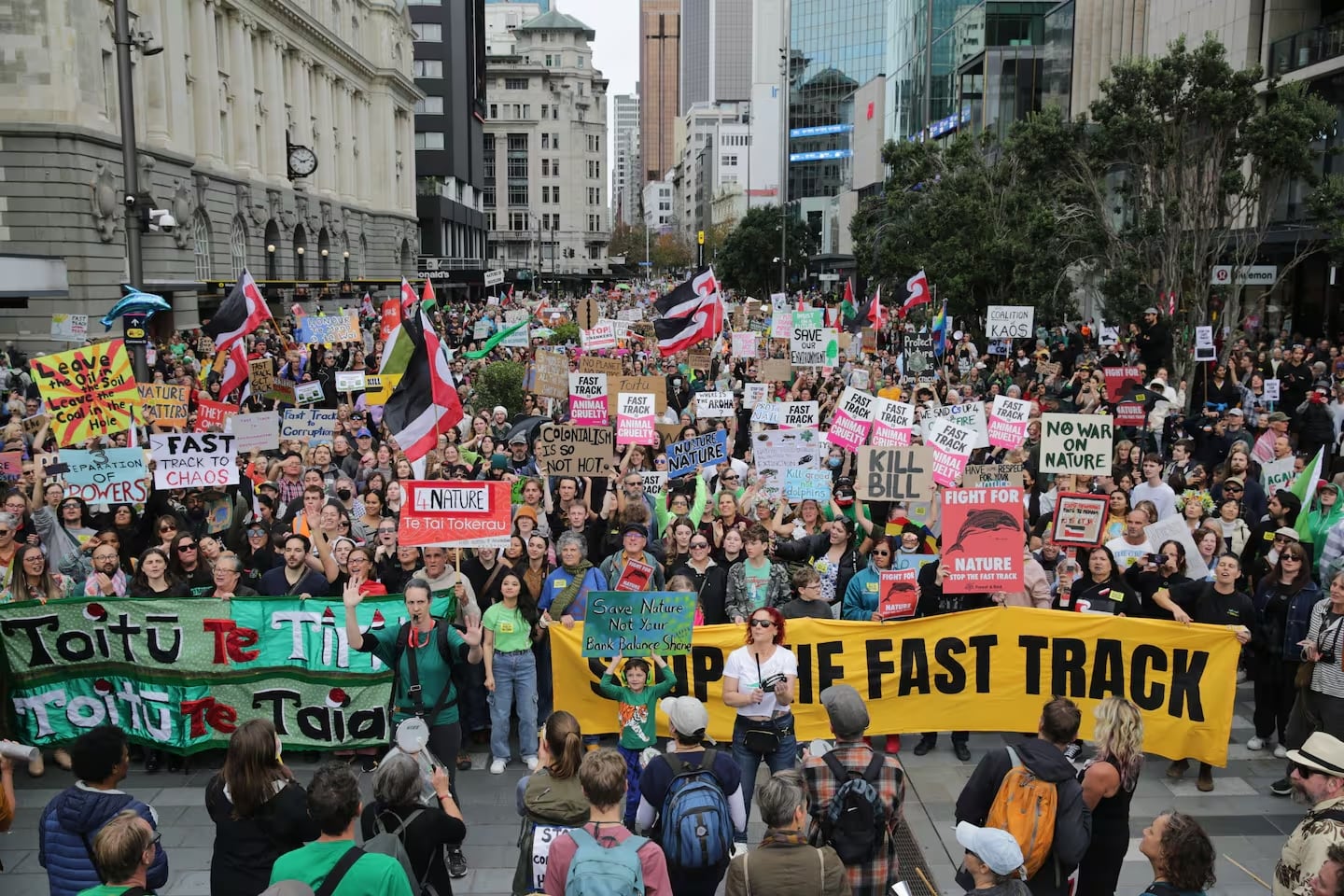Thousands of protesters brought downtown Auckland to a standstill on Saturday as they challenged a contentious bill allowing the coalition Government to speed up the consent process for major infrastructure projects.
One speaker at the March for Nature protest in Auckland estimated their number at 20,000.
The demonstrators filled Queen St in a line from one side of the street to the other and running from Aotea Square almost to the waterfront as they marched to show their opposition to the Fast-track Approvals Bill.
Resources Minister Shane Jones has adopted a bullish approach to promoting the bill and was the target of several signs at the protest.
He told the Herald after the march that the Resource Management Act (RMA) was “hobbling development” and “crushing jobs”.
“We’ve got unavoidable trade-offs to make, our economic situation is dire,” he said.
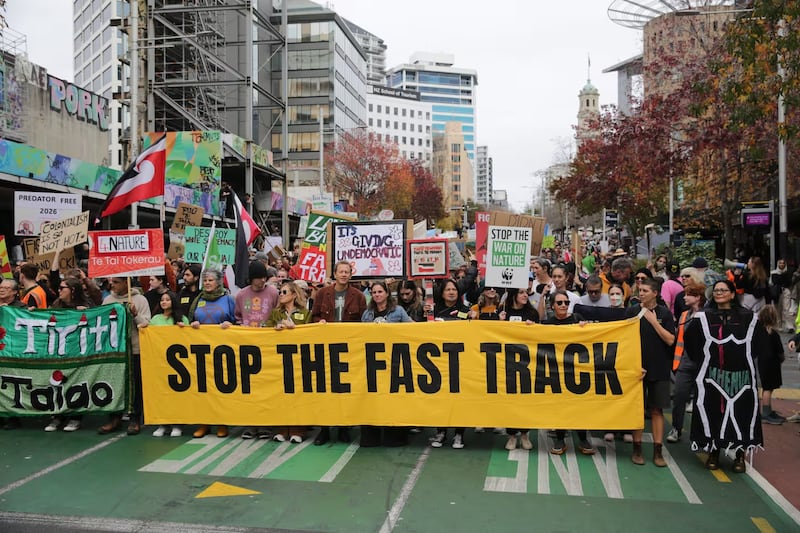
“I’d say to the middle-of-the-road, sensible marchers that we cannot afford the green jacking of our RMA system any longer.
“A few frogs will be in the departure lounge.”
The bill aims to speed up constants for new regional and nationally significant projects, but the potential for more mines with less public input or scrutiny has drawn the ire of environmental groups. It is currently at the select committee stage.
Saturday’s protest was organised by a range of groups including Greenpeace and Degrowth Aotearoa. It was an at-times raucous but peaceful demonstration.
Police were out in force but kept a low profile, closing more and more of Queen St as the protest lumbered towards Te Komititanga Square near the waterfront.
Paddy and Siri, who did not want their last names used, had travelled from the North Shore.
Paddy held a sign saying “Predator Free 2026″, referencing the date of the next election, with the faces of Prime Minister Christopher Luxon along with Jones and Chris Bishop, who will have new controversial powers to rapidly approve projects if the bill goes through.
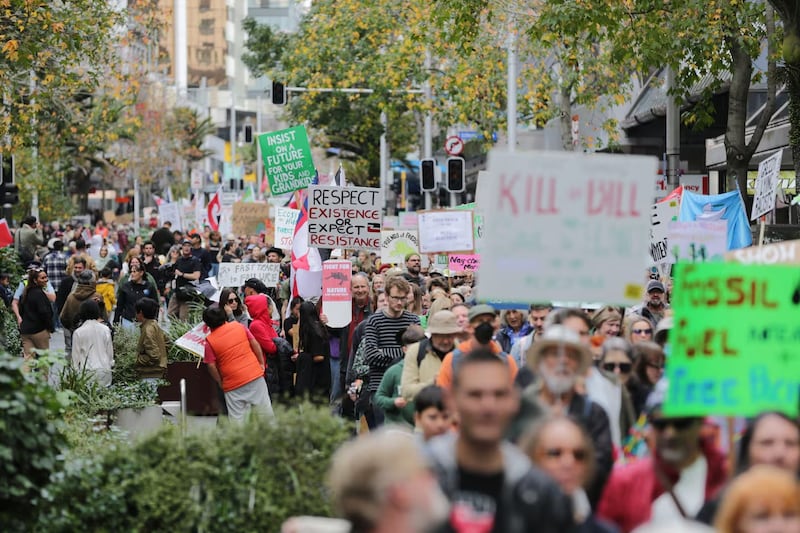
Siri said they feel betrayed by what she viewed as the failure of the Government to tell voters what they had planned while campaigning.
“These attacks on democracy and on nature are personal,” Siri said.
“They have betrayed us by not talking about what they’re going to do with conservation before the election.”
Siri also hit out at planned job cuts and cost-cutting at the Department of Conservation.
“They’re basically sacrificing what is left of our amazing fauna for flora for a very short-term gain,” she said.
Jones rejected that, and said his New Zealand First party had campaigned on exactly the kind of statutory reform represented by the bill.
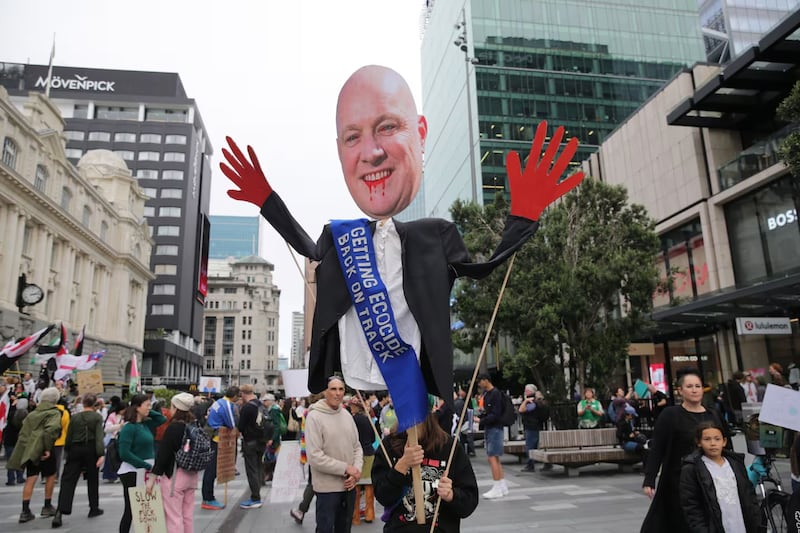
He said the country needed to focus on jobs, development and boosting resilience.
“The fast track is as much about highways, clean energy projects, possibly even hospitals as it is about marine farming and mining.”
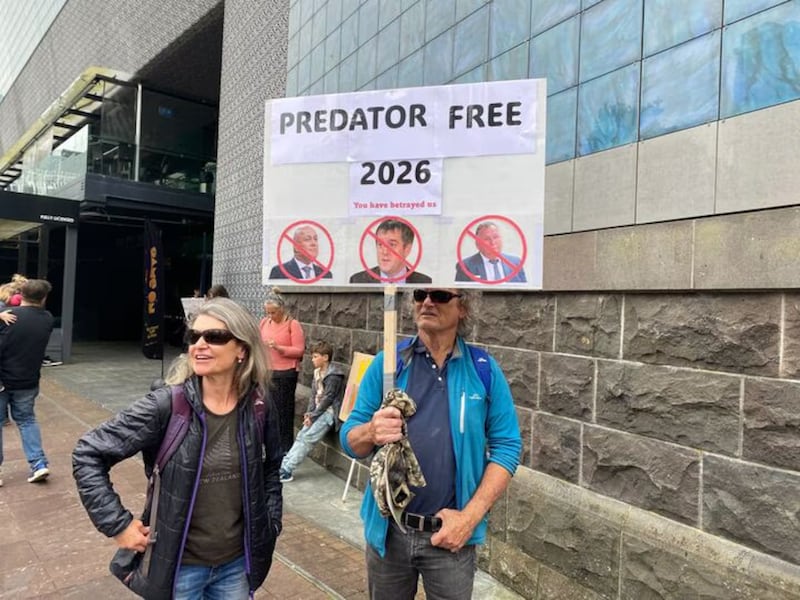
The Government says the bill will make “regionally and nationally significant” projects, such as roads, dams, mines and housing developments, happen faster by – in Infrastructure Minister Bishop’s words – “cutting through red and green tape holding us back”.
The bill, part of the coalition agreement between National and NZ First, also allows the regional development, transport and infrastructure ministers – and sometimes the conservation minister – to make final decisions on infrastructure proposals.
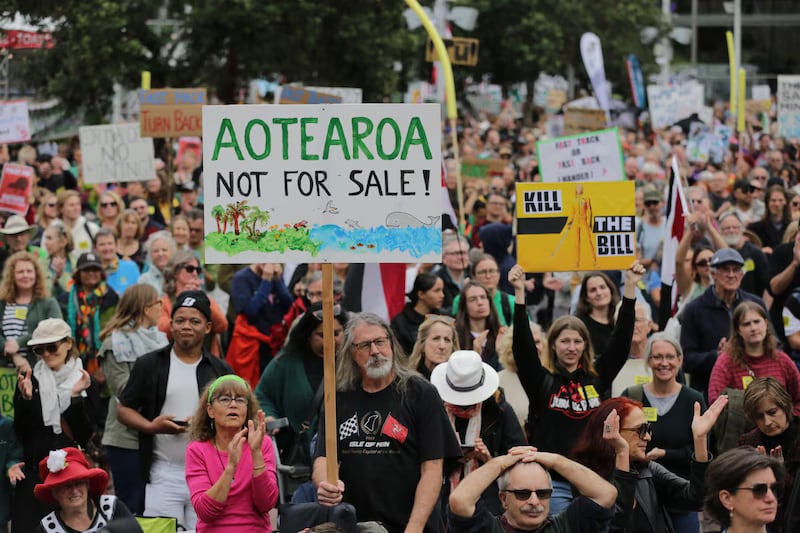
Greenpeace NZ chief executive Russel Norman, speaking to the crowd in Aotea Square, received applause when he issued a warning to companies planning to make use of the fast track consents if the bill becomes law.
He said future parliaments could always repeal the bill. Norman also pledged to disrupt any projects launched via the fast track consents.
“None of your resource consents can be guaranteed,” he said.
“Expect resistance from the public of Aotearoa.”
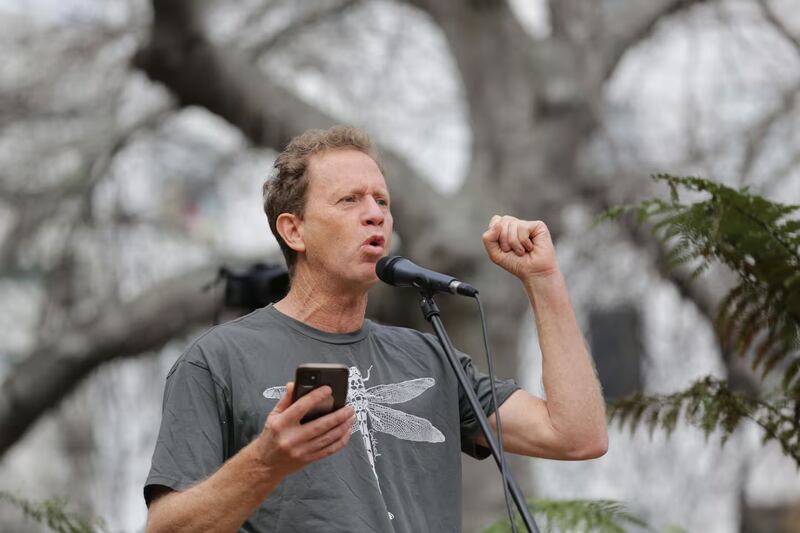
There was a strong contingent of pro-Palestine protesters among the March for Nature, with signs accusing the Government of being “complicit in genocide”.
Last year, Jones said, “… if there is a mining opportunity and it’s impeded by a blind frog, goodbye, Freddie.”
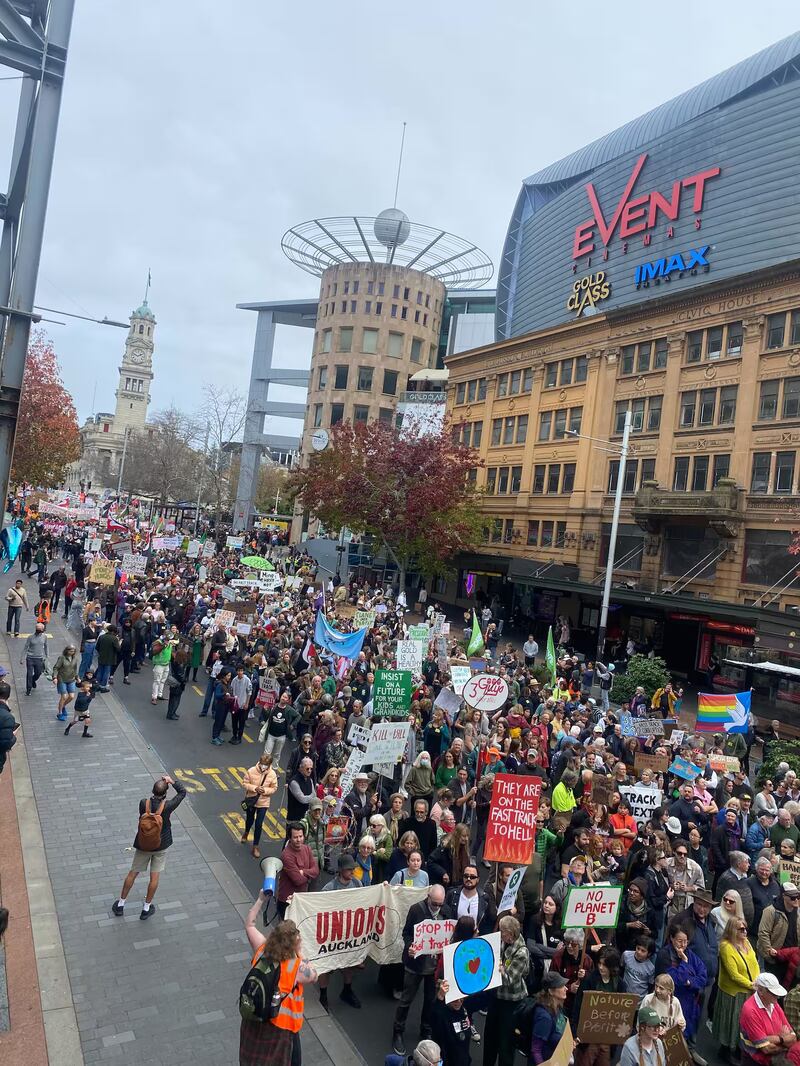
Forest and Bird chief executive Nicola Toki referenced the Minister’s quote when she addressed the crowd.
“Are we going to stand by and allow Coromandel mining to condemn our precious Freddie?”
“No!” the crowd replied.
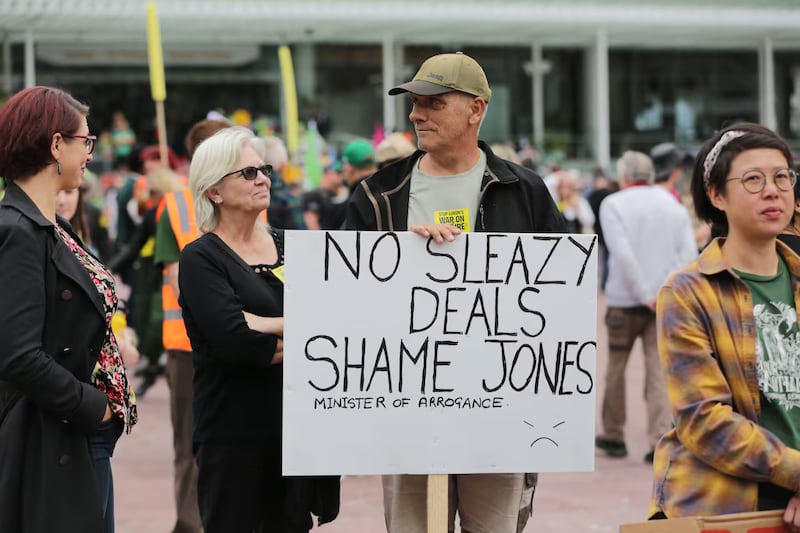
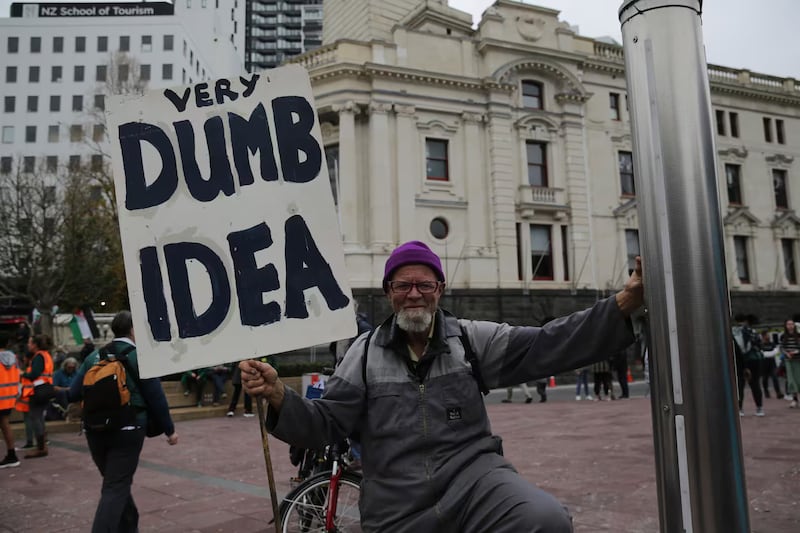
Motorists and public transport users were warned of disruption between noon and 4pm.
“Auckland city centre will still be accessible by bus, train, ferry, car, bike, and walking,” Auckland Transport says on its website.
But there will be some delays, road closures and detours – including to some city centre bus routes, it adds.
Access to the Downtown Car Park may also be restricted or closed for a short period.
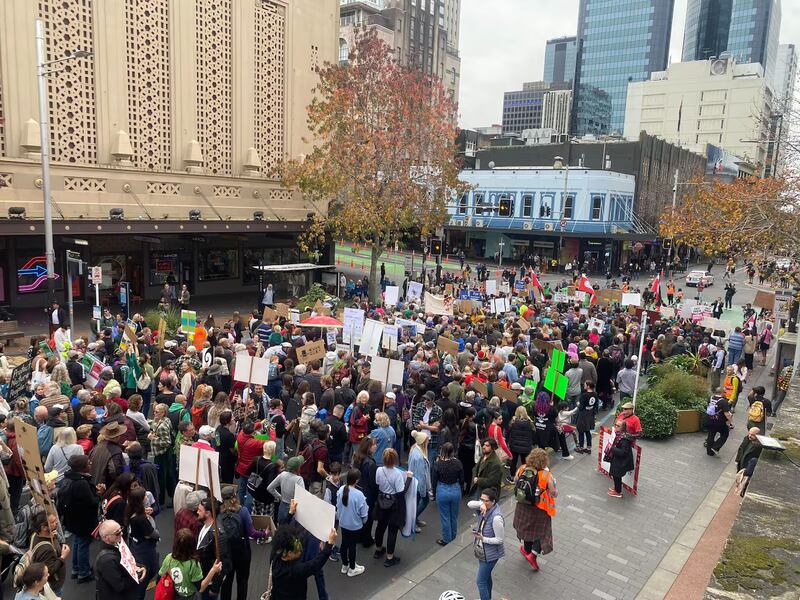
Other Government policies are also in protesters’ sights today and organisers are expecting thousands in Auckland, Nelson, Whakatāne, Christchurch and Tākaka to show their opposition to the bill, and what those behind the protest call the coalition’s “general war on nature”.
Meanwhile, in Wellington, the People Over Profits march from Pukeahu Memorial protested Government cuts to public services and thousands of job losses.
The Fast-track Approvals Bill is currently being considered by the Environmental Select Committee, which has allocated six weeks to consider public submissions and presentations, and will report back on its recommendations on September 7.

Twenty-seven thousand submissions have been made to Parliament on the bill, one of the highest numbers submitted about legislation, political commentator Bryce Edwards said.
Opponents include Forest and Bird, WWF and Greenpeace, trade union NZEI, Auckland Council and former New Zealander of the Year Dame Anne Salmond.

